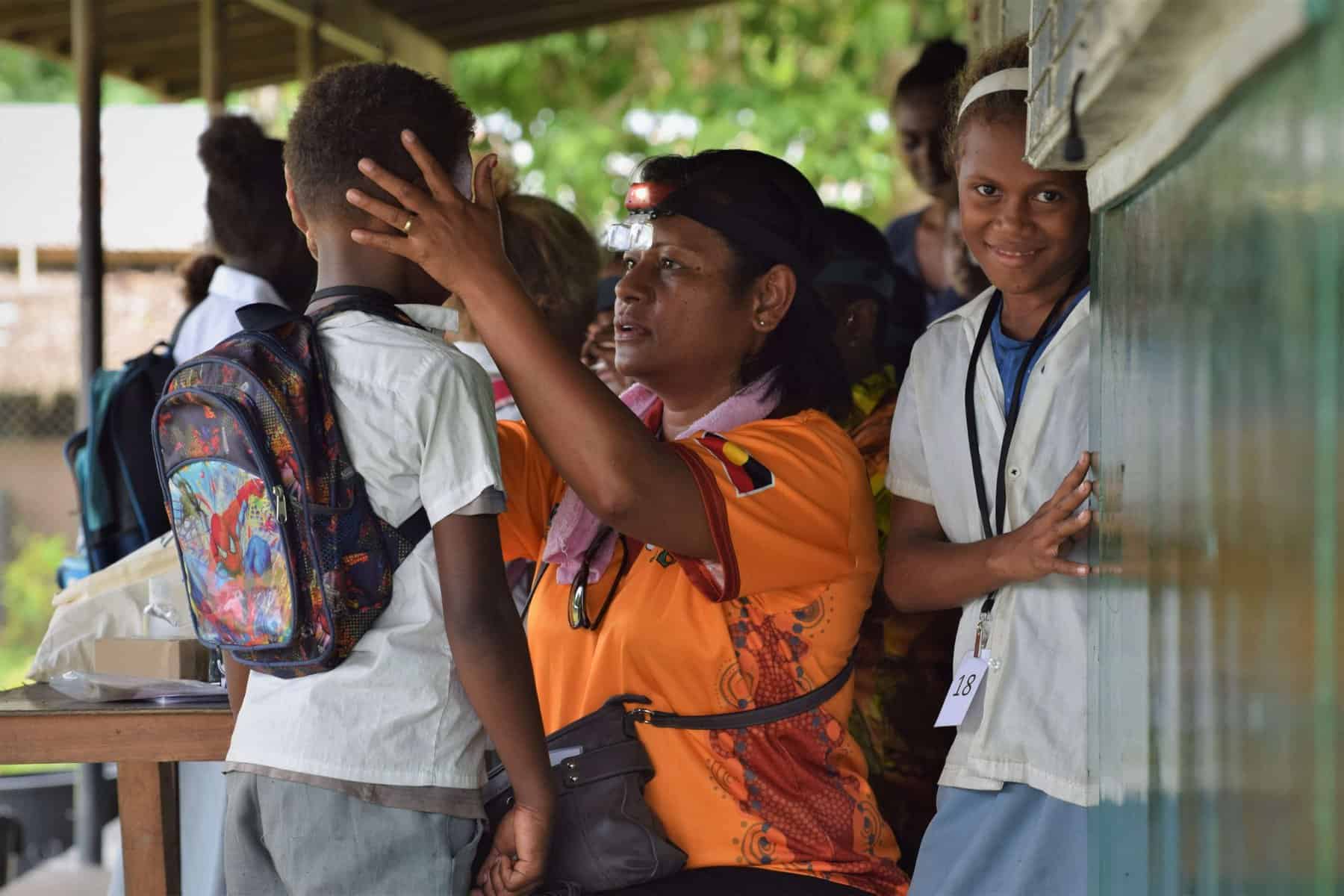The Fred Hollows Foundation has welcomed the World Health Organization’s (WHO) confirmation that Vanuatu has eliminated the eye disease trachoma as a public health problem.
The Foundation, with the support of The Queen Elizabeth Diamond Jubilee Trust, The UK Government’s The Commonwealth Fund and the Australian Government’s Australian NGO Cooperation Program (ANCP) funding, has helped drive the final push to eliminating the disease in Vanuatu.
Vanuatu is the first Pacific island country to eliminate trachoma, which is world’s leading infectious cause of blindness.
The disease thrives in areas where drinking water and sanitation is poor. The infection is easily spread through personal contact and by flies that have been in contact with people’s eyes or noses. It disproportionately affects mothers and children.
The Fred Hollows Foundation CEO Ian Wishart congratulated Vanuatu for declaring trachoma is no longer a public health problem.
“Vanuatu’s validation is encouraging news for several other Pacific nations which are working towards a final push to eliminate trachoma, an ancient disease that should not exist today,” Mr Wishart said.
The Fred Hollows Foundation’s Pacific trachoma expert Dr Anasaini Cama said the WHO’s validation was the culmination of concerted efforts by the Vanuatu Ministry of Health, global funders, Australia’s foreign aid program through the ANCP and a dedicated team of eye health workers on the ground in Vanuatu.
“Public health teams were mobilised throughout the country’s 83 islands, mapping prevalence and administering antibiotics through the Mass Drug Administration (MDA) program.
“Vanuatu’s journey to eliminate trachoma as a public health problem demonstrates that by working in partnership at the global and local levels, we can deliver results that have a lasting impact on people’s quality of life and well-being,” she said.
The International Coalition for Trachoma Control (ICTC) Chair Dr Angelia Sanders said: “Significant research efforts have supported progress to elimination in Vanuatu and across the WHO Western Pacific Region.
“Vanuatu’s success in eliminating trachoma as a public health problem should provide optimism across the region that the global NTD road map target to eliminate trachoma can be achieved by 2030, through effective partnerships and collaboration across sectors.”
WHO Department of Control of Neglected Tropical Diseases Chief Scientist Dr Anthony Solomon welcomed the announcement.
“We’re making a lot of progress to eliminate trachoma globally and we’re pleased to see Vanuatu and the Pacific notching up further successes,” he said.
The Fred Hollows Foundation congratulated the Government of Vanuatu and Ministry of Health and thanked the World Health Organization, International Trachoma Initiative and Pfizer, Tropical Data, Global Trachoma Mapping Project, International Agency for the Prevention of Blindness, RTI International, Sightsavers, London School of Hygiene and Tropical Medicine, The Queen Elizabeth Diamond Jubilee Trust, ANCP and The UK Government’s Commonwealth Fund.
The Fred Hollows Foundation is a global leader in eye health and international development. We work around the world so that no one is left behind, and in Australia, we work tirelessly to ensure that Aboriginal and Torres Strait Islander Peoples in Australia can always exercise their right to sight, good health and self-determination. Over the past 30 years, The Foundation has restored sight to more than 3 million people around the world and supported programs to deliver more than 200 million doses of antibiotics for trachoma.
